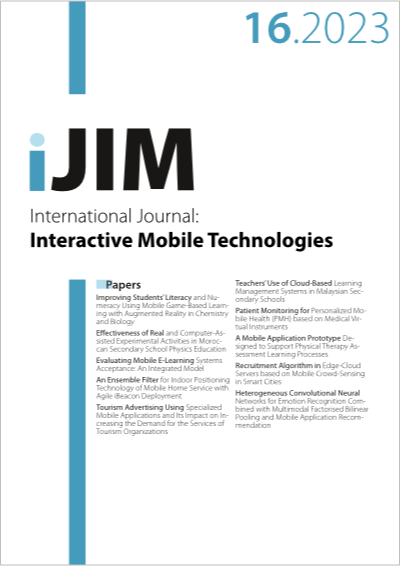Recruitment Algorithm in Edge-Cloud Servers based on Mobile Crowd-Sensing in Smart Cities
DOI:
https://doi.org/10.3991/ijim.v17i16.42685Keywords:
collaborative sensing; user recruiting algorithm; mobile crowdsensing; edge cloud servers (ECSs); smart city;Abstract
As more and more mobile devices rely on cloud services since the introduction of cloud computing, data privacy has emerged as one of the most pressing security concerns. Users typically encrypt their important data before uploading it to cloud servers to safeguard data privacy, which makes data usage challenging. On the other side, this also increases the possibility of brand-new issues in cities. A clever, effective and efficient urban monitoring system is required to address possible challenges that may arise in urban settings. In the smart city concept, which makes use of sensors, one strategy that might be used in IoT and cloud computing is to monitor and gather data on problems that develop in cities in real-time. However, it will take a while and be rather expensive to install IoT and sensors throughout the city. The Mobile Crowd-Sensing (MCS) method is proposed to be used in this study to retrieve and gather data on issues that arise in metropolitan areas from citizen reports made using mobile devices. And we suggest a budget-constrained, reputation-based collaborative user recruitment (RCUR) procedure for a MCS system. To construct an edge-assisted MCS system in urban situations, we first integrate edge computing into MCS. We also examine how user reputation affects user recruitment. Finally, we create a collaborative sensing approach using the edge nodes’ sensing capabilities.
Downloads
Published
How to Cite
Issue
Section
License
Copyright (c) 2023 Muhammad Alkirom Wildan, Mahmudah Enny Widyaningrum, T. Padmapriya, Basant Sah

This work is licensed under a Creative Commons Attribution 4.0 International License.



